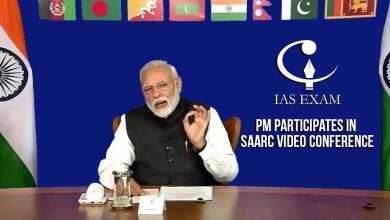There is a design flaw with this military post
Creating a Chief of Defence Staff is Problematic; it also erodes civilian supremacy over the defence establishment:
Recently, the Indian Government appointed Indian Army Chief General Bipin Rawat as the first Chief of Defence Staff with a mandate to bring in convergence in functioning of the Army, the Navy and the Indian Air Force and bolster the country’s military prowess. Prime Minister Narendra Modi had recently established the post of Chief of Defence Staff (CDS).
As CDS, General Rawat will be the topmost defence officer of the country and will be the single point of contact for the government. His appointment to the newly created post came a day before he was due to retire following a three-year tenure as the Army Chief during which he initiated a series of reforms in the 1.3 million-strong force besides following a policy of “hot pursuit” in dealing with cross border terrorism in Jammu and Kashmir.
After the Kargil fiasco an expert committee was set up under the chairmanship of K. Subramanyan to look into all aspects of national security; with one of its key recommendations being the appointment of a Chief of Defense Staff.
Subsequently the Naresh Chandra committee was set up to suggest reforms in higher defense management, it also underscored the importance of a CDS but pitched for a watered down version in terms of a permanent Chairman Joint Chief of Staff.
Current Issues with the System
- The Defence Management in the country is currently similar to that of the JCOS Model of the USA where senior-most chief.
- All the three parts of the Indian Armed Forces are still regarded as ‘Attached Offices’ of the Ministry of Defence. Practically, it is the Defence Secretary who is responsible for the defense of the country as it acts as the channel between the military and civilian executive.
- India is the only country with a Ministry of Defence which is devoid of military professionals, with bureaucrats lacking a military background, hiding their ineptitude and incompetence in their respective cocoons and without accountability, making money through scams and appeasing their political bosses.
- The problem with the existing separate military headquarters is that there is a turf war between the three wings with each seeing things with its own perspective and requirement.
Advantages of the New Post
- The new office of the Chief of Defence Staff (CDS) tends to unite all the three Armed Forces so as to act as a single entity with adequate coordination.
- Policy-making on operations, procurement and joint logistics proposals would not remain stuck due to executive delay. This was highly the need of the hour amidst heightened risk of security in the country’s neighborhood.
- The CDS Model will correct the anomaly of civic-military interface during the shaping/ deterrence phase, during operations, or after the occurrence of unsavory situations.
- Appointing either the CDS or Permanent Chairman COSC would separate the two roles i.e. the senior most Serving Chief holding both the posts of Chief of Staff Committee and Chief of his own service, and bring the requisite professional focus to each.
- The proposition also augurs well for strategizing of a cost effective and robust national defence policy; synergized and calibrated tri-service contingency planning; capital acquisition plan within an affordable fiscal regime.
Disadvantages
- The real question is whether the proposed office of the CDS can bring synergy within the three services when he has no operational powers over the military or not?
- As and when the CDS is established, he will have equal voting rights as the service chiefs, and where two service chiefs don’t agree, the Ministry of Defence will arbitrate”. Now if a CDS is to be a “single point advisor”, where is the question of two chiefs not agreeing?
- The PC COSC will be responsible for all military hardware acquisition processes, tri-service commands. However, security experts have apprehensions that this is no different from the current arrangement of having a rotational chairman of the COSC since raising of HQ Integrated Defence Staff (IDS), other than that the rotational incumbent normally has tenure of less than two years.
However most problematic is the erosion of civilian supremacy over the defence establishment in the Ministry of Defence itself. This impacts on the first principles of constitutionalism and has implications for our democratic polity also. Sophistry is being employed to suggest that the Secretary DMA would be in charge of military affairs and the Defence Secretary would look after the ‘defence of the realm’. The fact is that the defence of India is managed by the three services who would now report to the DMA. Since the DMA would exercise control over the three services, it virtually makes the CDS the ‘Supreme Commander of the Indian Armed Forces’.
SOURCE: The Hindu





.png)



